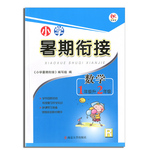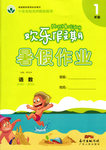题目内容
— Can I look at the menu before I make an order?
— Of course. ___________, madam.
A. Take your time B. Don’t mention it
C. Never mind D. Help yourself
练习册系列答案
 学而优暑期衔接南京大学出版社系列答案
学而优暑期衔接南京大学出版社系列答案 Happy holiday欢乐假期暑假作业广东人民出版社系列答案
Happy holiday欢乐假期暑假作业广东人民出版社系列答案
相关题目
题目内容
— Can I look at the menu before I make an order?
— Of course. ___________, madam.
A. Take your time B. Don’t mention it
C. Never mind D. Help yourself
 学而优暑期衔接南京大学出版社系列答案
学而优暑期衔接南京大学出版社系列答案 Happy holiday欢乐假期暑假作业广东人民出版社系列答案
Happy holiday欢乐假期暑假作业广东人民出版社系列答案